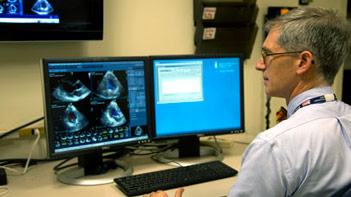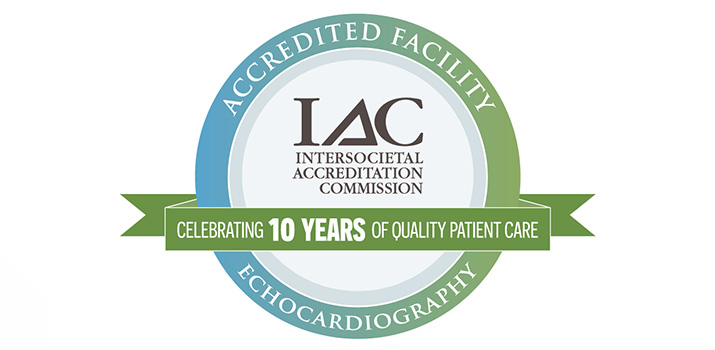Non-Invasive Cardiac Imaging
About Our Imaging Center
Our patients’ comfort and providing state-of-the-art imaging care are our top priorities.

The noninvasive cardiac imaging and testing specialists in the CVI provide a range of cardiovascular imaging services for individuals with suspected or existing heart and vascular conditions.
Cardiovascular imaging is an integral part of diagnosing a variety of cardiovascular conditions, and is often used to monitor the effectiveness of treatment. Each year, BIDMC specialists perform more than 70,000 electrocardiograms, 15,000 echocardiograms, 5,000 stress tests, 800 cardiac magnetic resonance imaging studies and 1,800 radionuclide studies.
Our specialists work closely with other cardiovascular medicine colleagues, primary care physicians, radiologists and anesthesiologists. This collaboration among multiple medical disciplines keeps the lines of communication open and enhances quality of care for patients and families.
Types of Imaging
Obtaining Your Images
To receive a copy of exam images, please follow these steps:
- Email us or call 617-632-7360. Please provide your name and other identifying information along with the date of the study being requested.
- Fill out and sign a Medical Images Release form.
- Email the completed form to us or fax it to 617-632-7620.
- We can send the images electronically to you or by mail. If you would like us to send a copy of your study to a physician outside the BIDMC, we will need a signed release from you along with the study you would like sent and the receiving doctor's name and email or address. You can send us that signed release form to the email or fax number listed above.

